Converting FileDitch to Go
Converting FileDitch from Node.js to Go
Hey everyone! Remember FileDitch, our temporary file sharing service? I recently decided to rewrite it in Go, and I wanted to share my experience with the conversion process, the challenges faced, and the improvements gained.
Why Go?
While the Node.js version worked well, I had a few motivations for switching to Go:
- Better Resource Management: Go's built-in concurrency and lower memory footprint make it ideal for handling multiple file uploads.
- Simpler Deployment: A single binary with no runtime dependencies (except SQLite) makes deployment much easier.
- Type Safety: Static typing helps catch errors at compile time rather than runtime.
- Standard Library: Go's standard library is comprehensive, reducing external dependencies.
Architecture Overview
Here's how we structured the Go version:
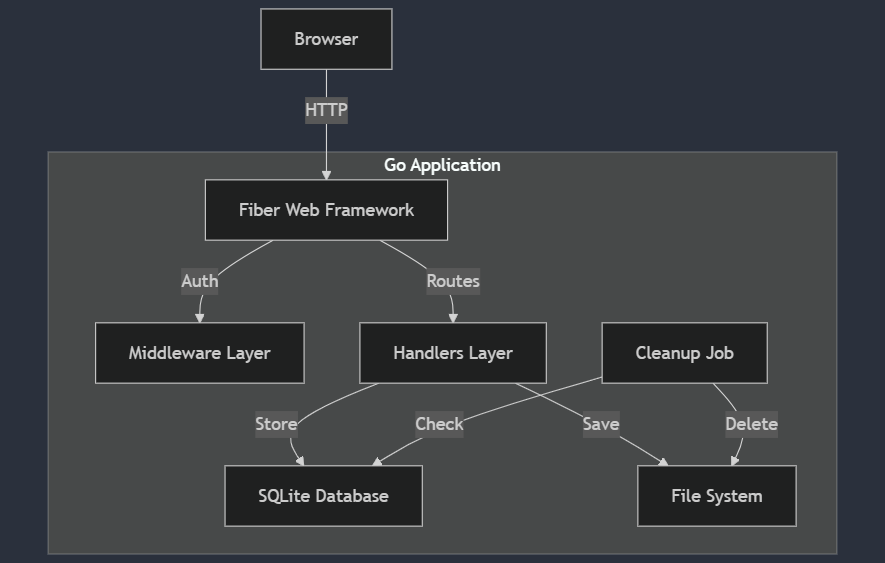
Request Flow
The upload process in the Go version:
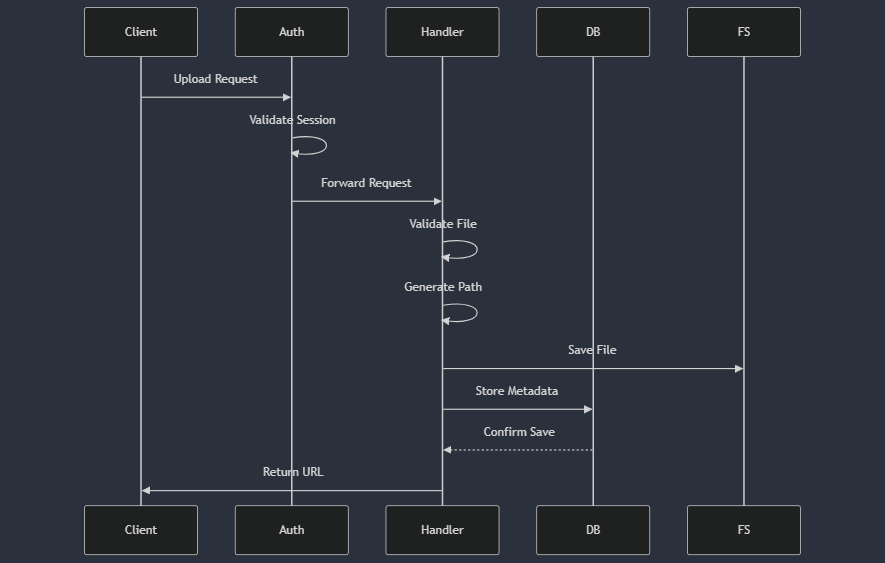
Database Structure
Our SQLite schema visualization:
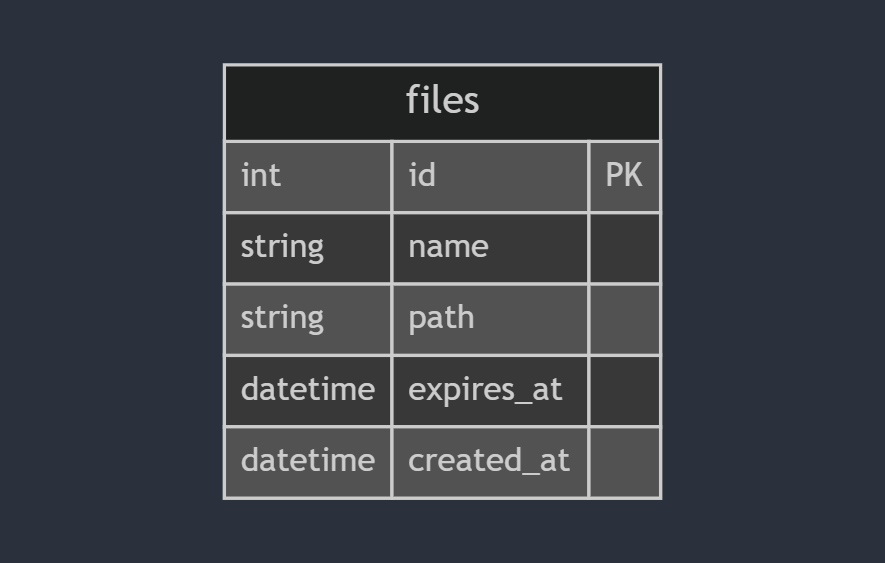
Cleanup Process
The file cleanup system runs as a background goroutine:
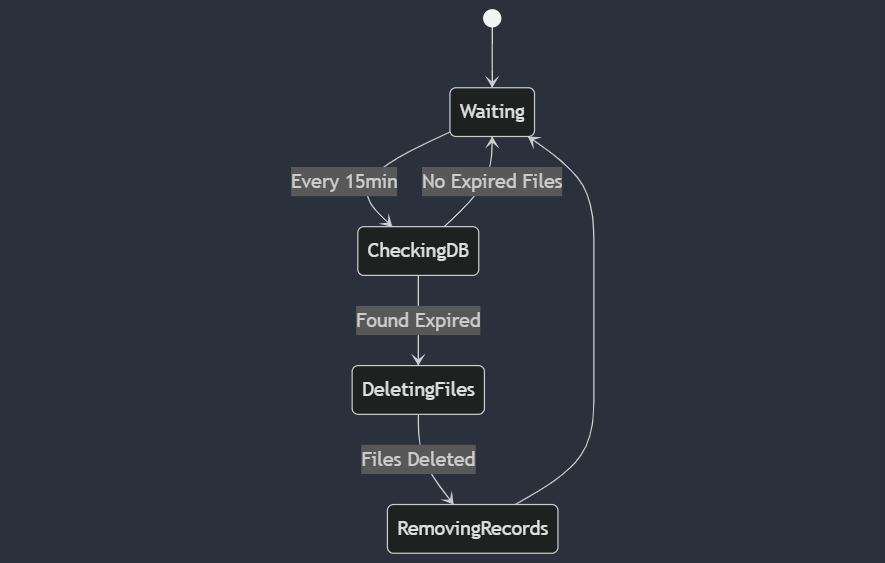
Performance Improvements
Here's how the Go version compares to Node.js:
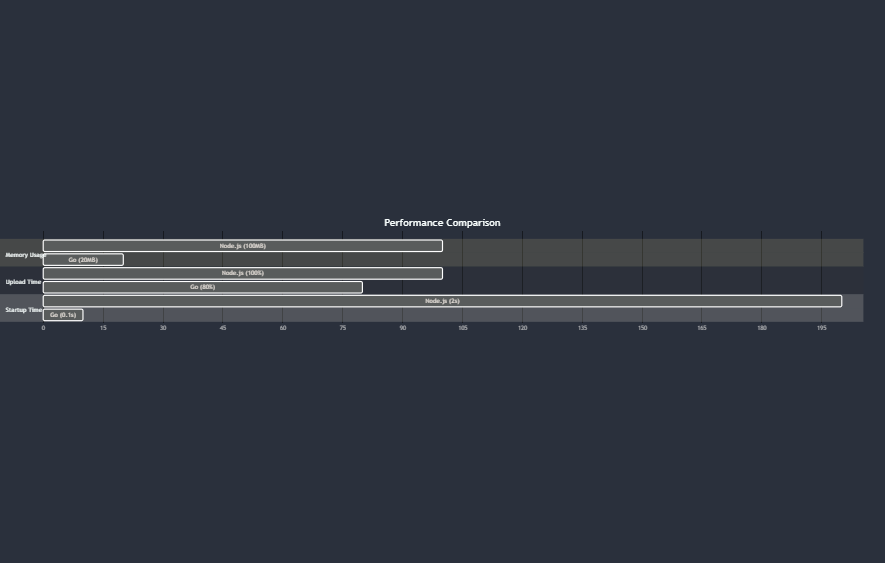
Deployment Architecture
Our deployment setup with Go:
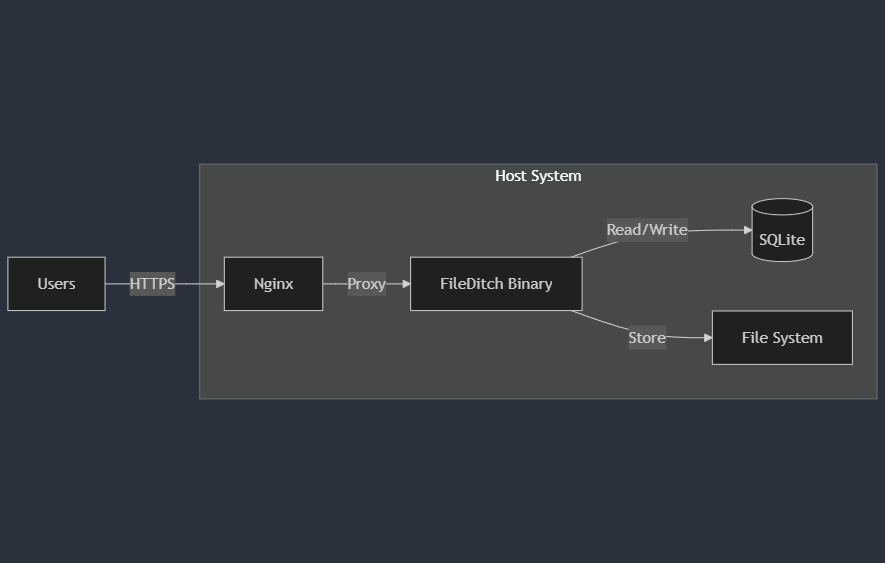
Development Workflow
The development process became more streamlined:
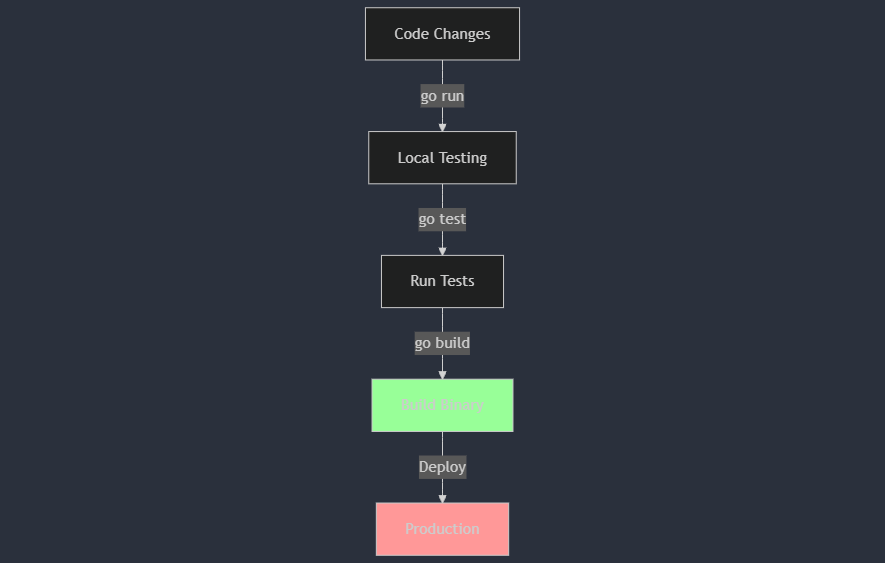
What's Next?
Here are the planned improvements for the Go version:
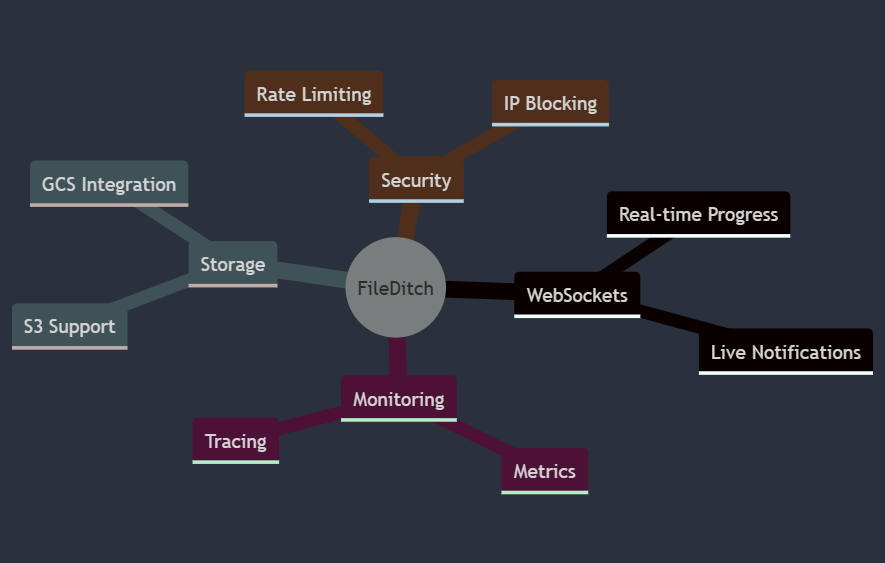
Concluding
The complete code is available in the same repository. The go version is now the default branch.
Feel free to try out the new version and let me know your thoughts!